Mercedes Formula 1 boss Toto Wolff learned on Wednesday morning that Lewis Hamilton would be leaving for Ferrari because the seven-time world champion “needed a change”.
Wolff has spoken for the first time since the bombshell news, confirmed on Thursday, that Hamilton would leave his long-time team – having triggered a release option in the two-year contract he only signed last summer.
The Race was present to get Wolff’s reaction, establish key details like the timeline that played out, ask what Hamilton’s rationale was, and find out what Mercedes does next.
TIMING A ‘SURPRISE’
The prospect of Hamilton joining Ferrari was well established as Wolff had discussed it with his driver previously.
And a move away was a known risk given Mercedes had willingly entered the new contract with Hamilton on a short-term basis with the option to leave at the end of 2024.
But the Mercedes co-owner did not really think it would ever happen. And it is the timing of the decision, which Hamilton informed Wolff of in person on Wednesday morning, that surprised Wolff in particular.
“We got together for a coffee in my place in Oxford, and [ahead of] basically him returning to the factory, and he said to me he had decided to race for Ferrari in 2025,” said Wolff.
“That was basically it. Then we had a good hour of conversation.”
Wolff reckoned the timing can be explained by Hamilton wanting to “protect the team’s interests”, given he had made up his mind, as this allows Mercedes to plan for his exit in advance of his final season.
That gives it a lot of time to work out a succession plan but also manage potential awkwardness such as phasing Hamilton out of 2025 development work and ensuring everybody is on the same page with the team’s goals.
“I don’t have any doubt over Lewis’s integrity in terms of sharing information and in that respect we just want to make sure that this is a successful season for both drivers and a successful season for Mercedes,” said Wolff.
“All of us will give our utmost to achieve that.”
HAMILTON NEEDED A CHANGE
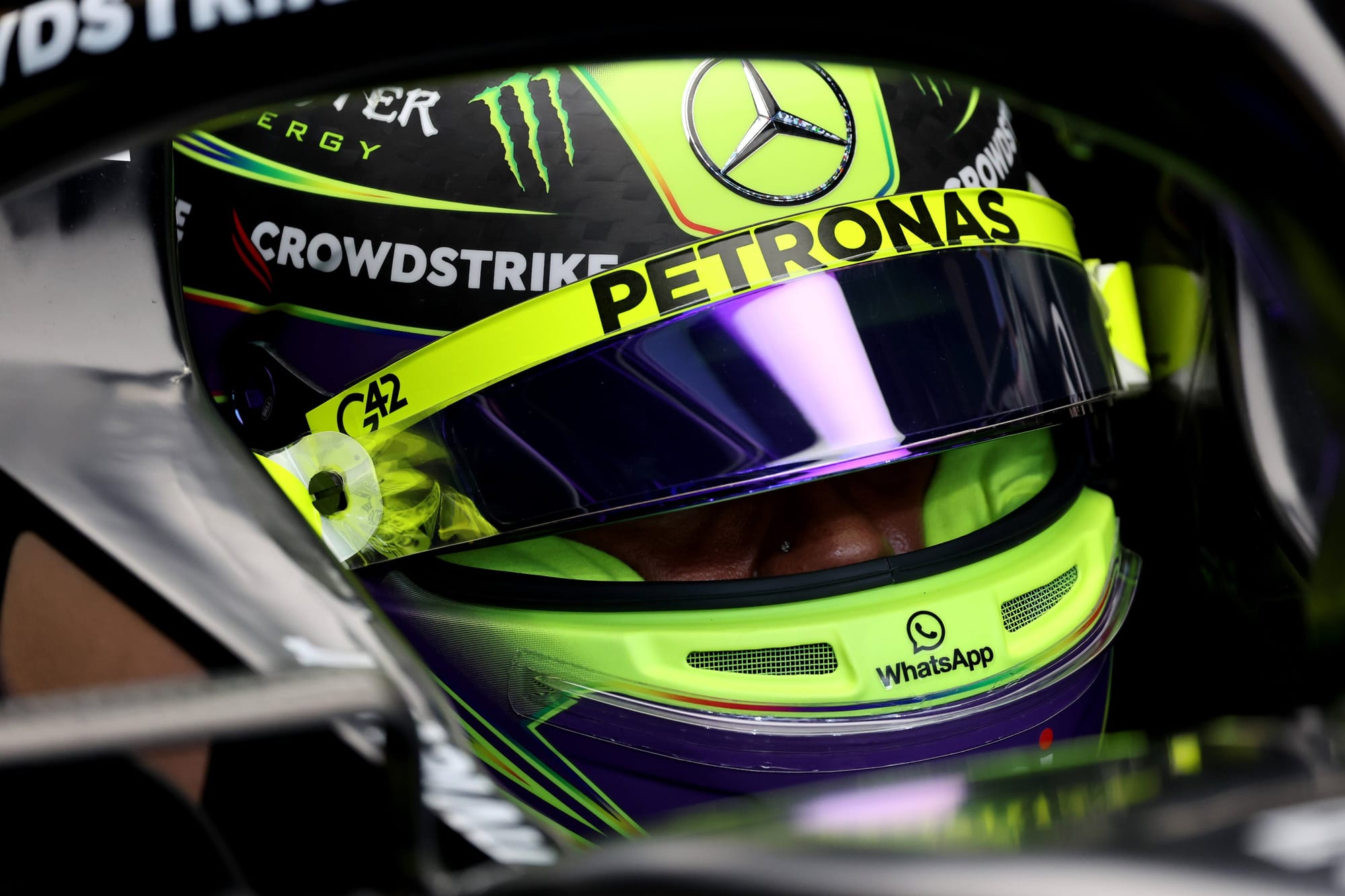
One of the key questions since the news broke was simple: Why?
There were multiple factors at play: salary, contract length, the emotional draw of driving for Ferrari and of course the competitive prospects of both teams.
Initially, when The Race asked what had changed given his Mercedes deal was done last summer and Hamilton still has not driven the 2024 car in reality yet, so the core factors seemed to be the same, Wolff did not want to speak on Hamilton’s behalf.
He admitted that he and the team felt “very aligned” with Hamilton going into the winter, so we would need to ask Lewis “why he changed his mind” about staying with Mercedes.
But then Wolff hinted at a couple of firm reasons: the length of the contract on offer from Ferrari, for one, and the fact Hamilton simply needed a change.
“How he framed it to me it is perfectly understandable – that he needed a new challenge, that he was looking for a different environment, and it was maybe the last possibility to do something else,” Wolff said.
WOLFF STOIC – MOSTLY
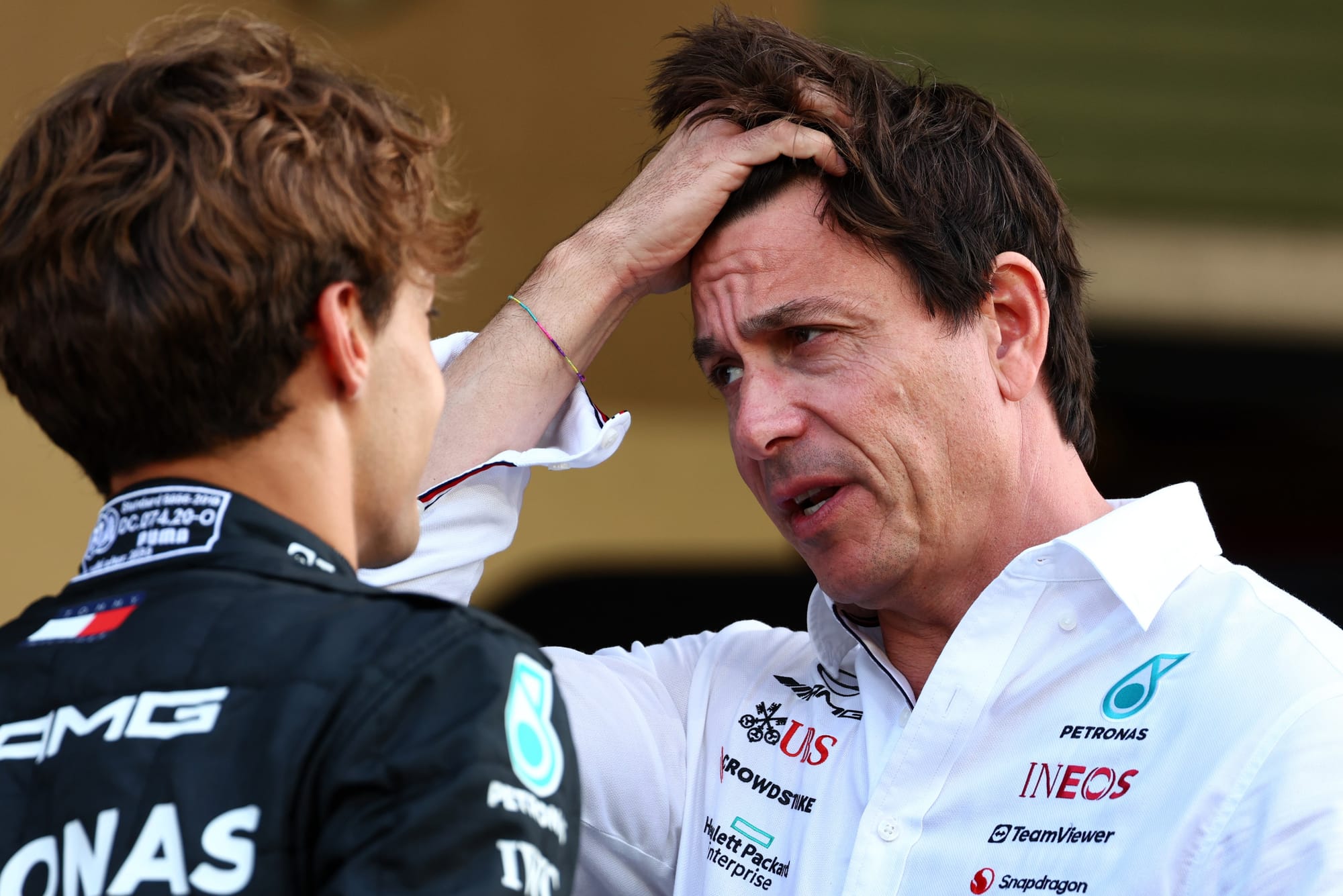
This is bound to sting, given Wolff is losing his star driver to a big rival and has spoken previously about his close relationship with Hamilton.
But for the most part, Wolff hid any sign of pain or frustration.
He said all the right things about Hamilton’s legacy and place in the team’s history, and put a big emphasis on doing right by Mercedes longer-term – talking up George Russell and reaffirming his own commitment to making this team a champion again.
Wolff was very “pragmatic”, to use a word he said when describing his immediate reaction to first hearing the news directly from Hamilton. But there were inevitably a couple of glimpses of how he really felt underneath – and he even said that “in the future we will discuss whether this could have been done in a different way”.
That’s understandable given this was clearly a surprise to Wolff as much as anybody. He was just 24 hours or so ahead of the rest of us in dealing with it.
MERCEDES DIDN’T WANT MORE THAN TWO YEARS

To reiterate, Mercedes had announced Hamilton as being retained on a ‘two-year deal’. The quote marks there are because a two-year deal is for two years, and this one… is, in the end, not.
So how – and why – did it happen that one of F1’s biggest teams put itself in a position to be publicly undercut by its driver cancelling half of the contract just months after the announcement?
Wolff, understandably, didn’t go on the details of that original negotiation. But what he said painted a sequence of events in which Hamilton’s impending defection to Ferrari has been borne out of Mercedes’ reluctance for a commitment for longer than two years.
“We’re big boys – we knew that signing a short-term contract could be of benefit for both sides,” said Wolff.
“We couldn’t commit for a longer period.
“We knew it could be a year, it could be two.
“We [Hamilton and Mercedes] shared the opinion, when we decided to sign a short-term contract, that there may be opportunities for him and for us – and therefore maybe also one of the considerations was the opportunity [for Hamilton] to sign a longer-term contract with Ferrari, give it a really big go at the end of his career.”
If this reminds you of the rhetoric from the now-former Alpine chiefs on being ‘outbid’ for Fernando Alonso’s services by Aston – well, you are not alone at all.
At the same time, with Wolff’s faith in Russell sky-high and the fact any deal beyond 2025 would’ve committed Mercedes to running Hamilton at at least age 41, the logic isn’t a foreign one (though maybe it wasn’t for Alpine, either).
“Everything we are doing, we are doing it with consciousness and with open eyes,” said Wolff. “And we felt that a longer-term contract would limit our options going forward.
“[We were] absolutely aware of all the positives and the negatives, and weighting it up, that was what we decided to do.”
‘BOLD’ REPLACEMENT POSSIBLE
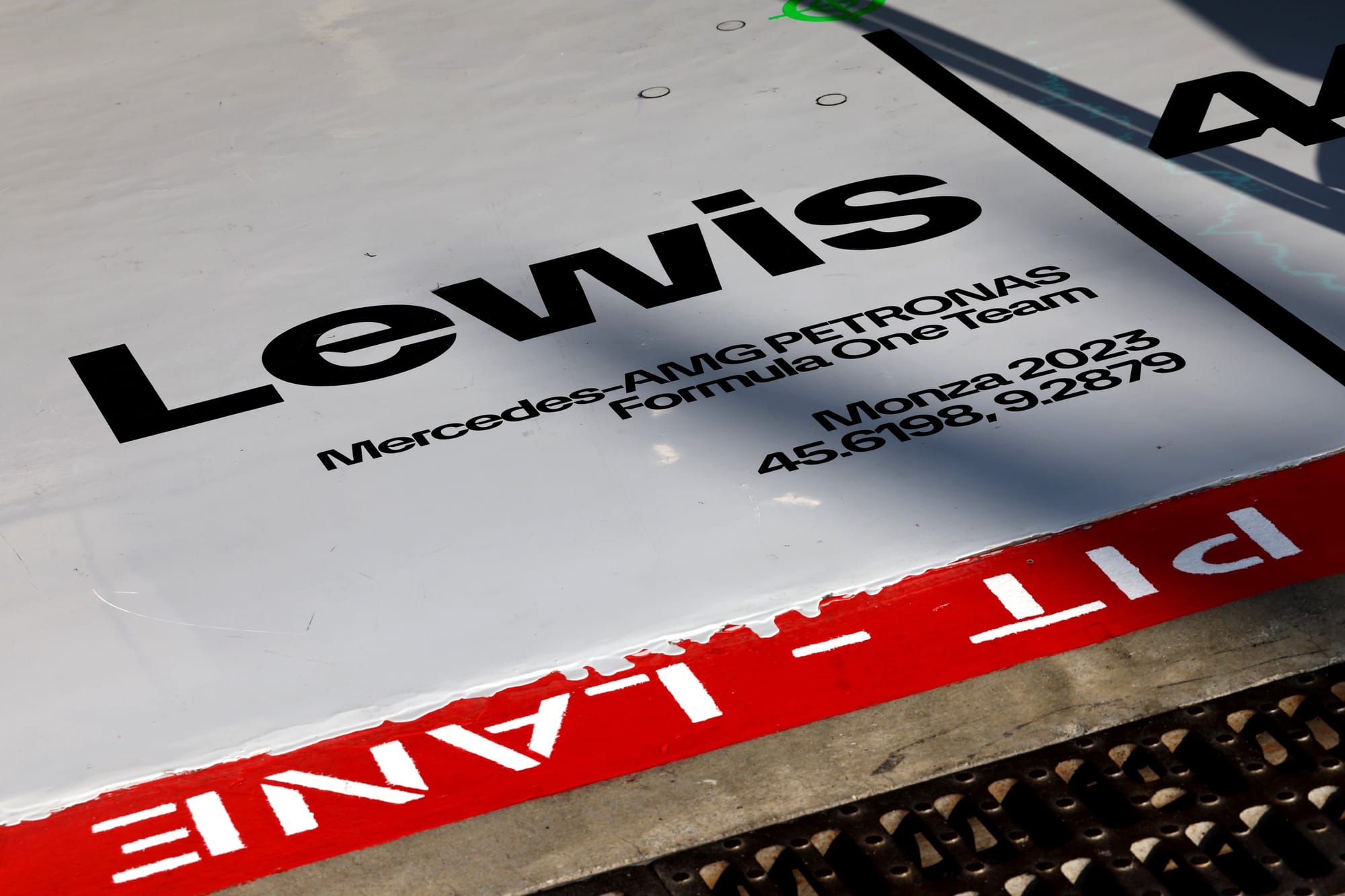
“Our options”, as Wolff describes them, of course means other drivers. Not necessarily quicker drivers than Hamilton, but younger drivers – and drivers who may only be available for a limited period of time.
Now that the task of replacing Hamilton is a reality, and perhaps a relatively urgent one at that, Wolff isn’t ready to go too in-depth on his thinking for how Mercedes will go about this task.
He was asked about the impending recruitment process repeatedly, and largely stuck to the script of “there is a variety of options” and “this is not something I want to be rushed in”. In other words, check back later.
“I guess that a few contracts have been signed a few weeks ago, that we would have looked at, that could’ve been interesting,” he admitted, referencing the renewals for Lando Norris at McLaren and Charles Leclerc at Ferrari respectively.
“But timing here bit us a bit. But in a way I always like change, because change provides you an opportunity.
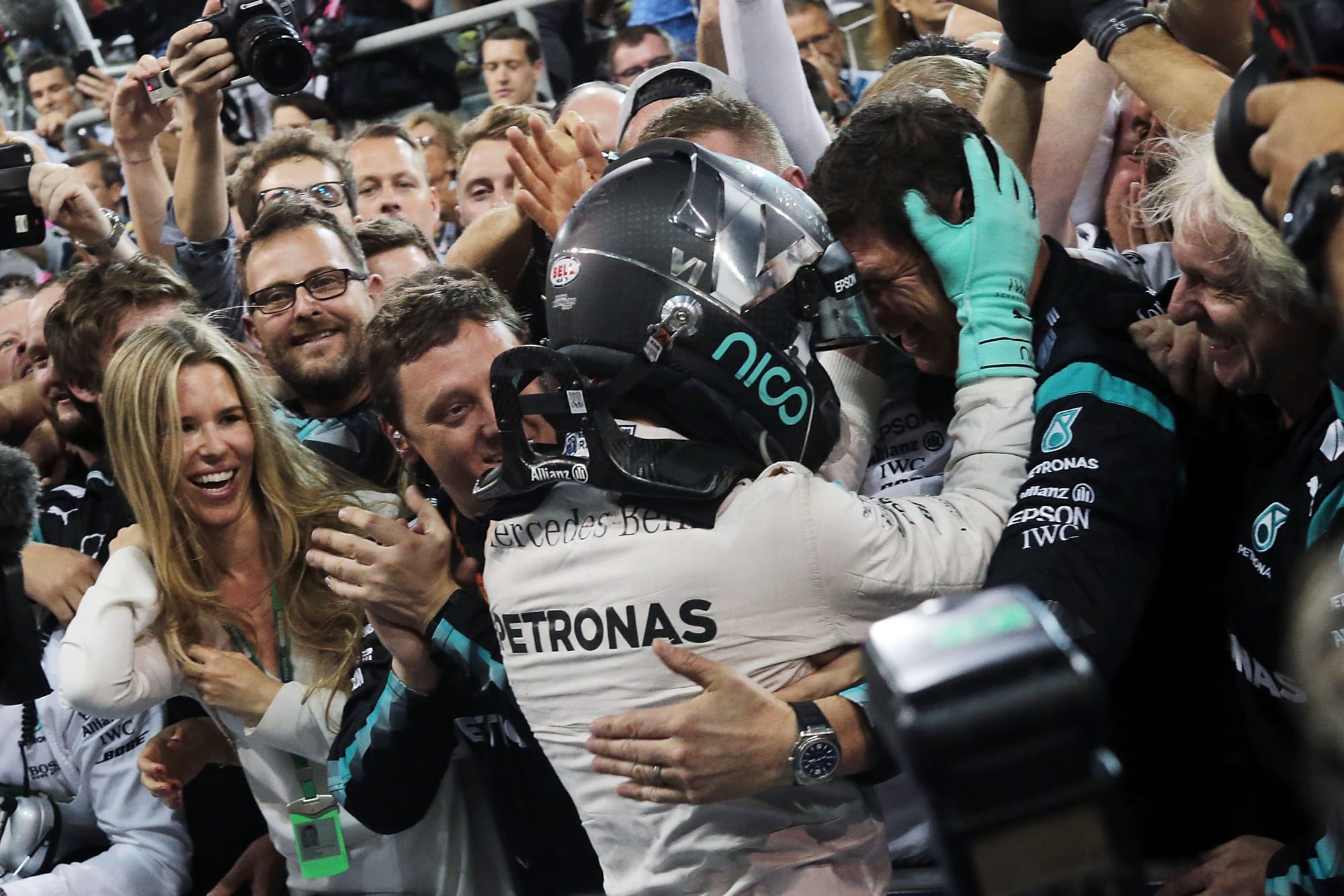
“And in the same way we’ve embraced the Nico situation [Nico Rosberg’s sudden end-of-2016 retirement] – and that was equally from one moment to the other unexpected – I am really looking forward to taking the right decisions for the team, together with my colleagues, in who is going to be in the seat next year.
“And… you know, maybe it’s a chance to do something bold.”
What “something bold” may be only Wolff and his confidants know for now. But you can’t get much bolder than, say, sticking a hot-shot rookie into the car in 2025.
BOLDEST REPLACEMENT POSSIBLE?
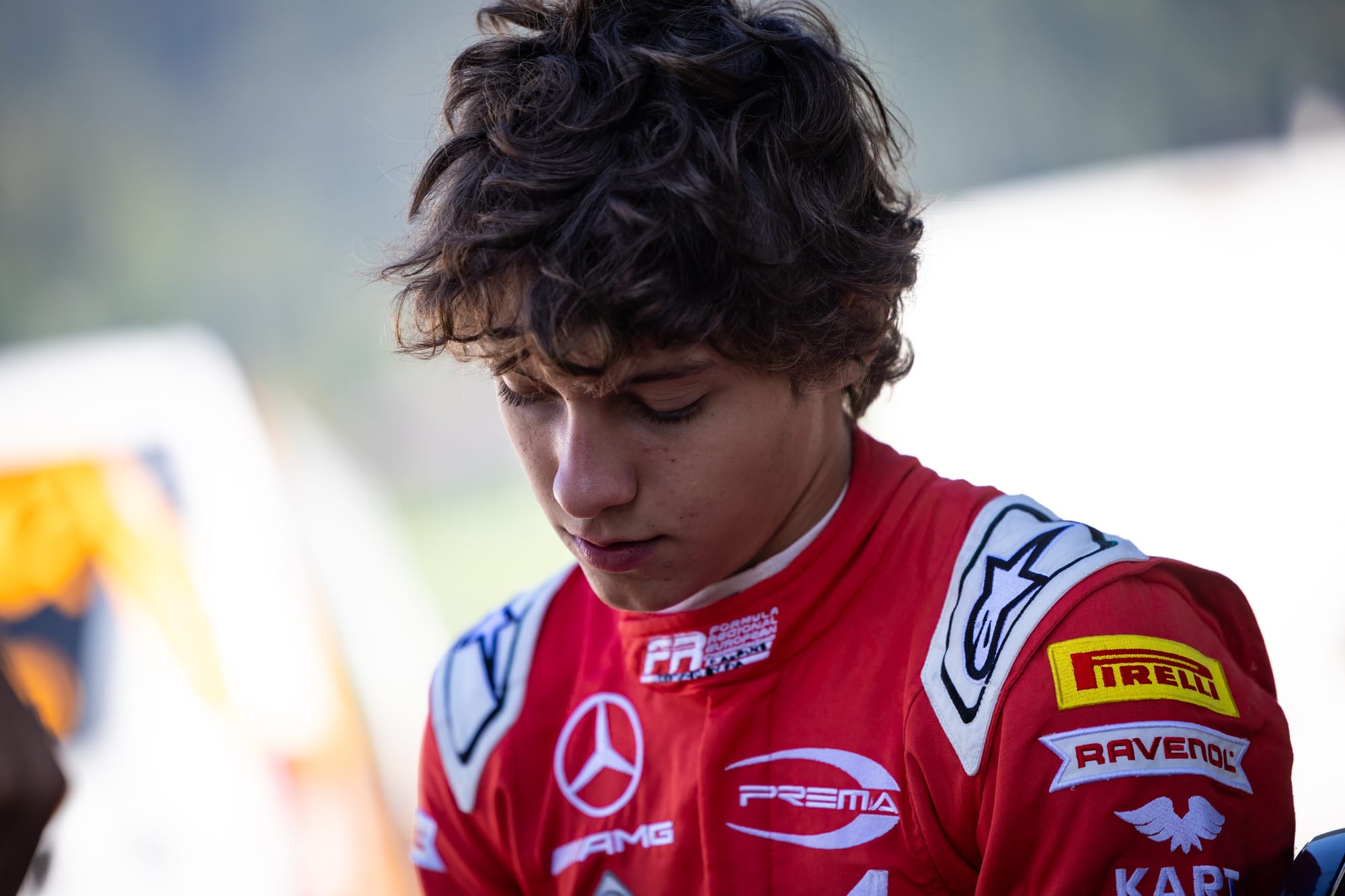
Mercedes protege Andrea Kimi Antonelli will be debuting in Formula 2 this year. To say there’s general excitement about his potential is to severely understate things – his F1 promotion is widely seen as a matter of when, not if.
He is, in theory, superlicence eligible as soon as he turns 18 later this year. If his F2 season is good enough, there will be nothing stopping Mercedes from sticking him straight into the (presumed) Mercedes W16 except for, perhaps, its own judgment.
The Race’s Edd Straw asked Wolff about this very prospect, and it was played down – but not exactly dismissed.
“Kimi’s been with Mercedes since he was 11. He’s been in the junior programme, and his junior career was very successful.
“But most important at this stage is that he concentrates on F2. I think if we start to spin his mind or unleash rumours onto him, that’s not going to help his F2 campaign.
“He’s just stepped out of karts a few years ago [in 2021]. He’s not even 18.
“I would rather not start any speculation about Kimi going into F1 at this stage.”
Point taken – but if Antonelli hits the ground running in F2 (which he already more or less has in testing), that speculation will be impossible to contain, and Hamilton’s 2025 exit will be a key detail adjacent to it.
WHAT ABOUT THE RACE ENGINEER?
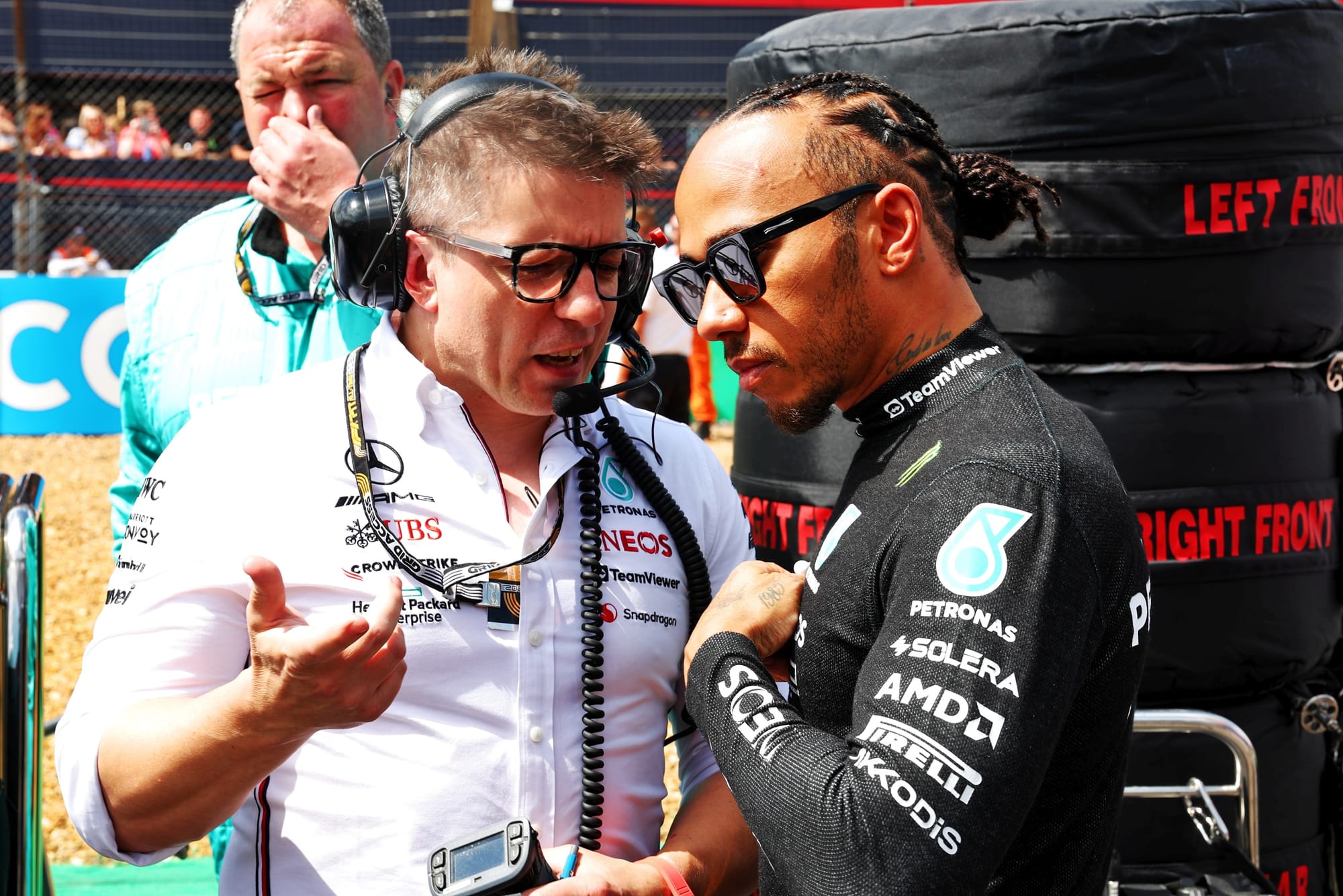
The story of the Hamilton/Mercedes run of incredible success that came to define F1 without half a decade cannot be told without Peter Bonnington, perhaps F1’s best known race engineer… ever.
Bonnington has held that role on Hamilton’s side of the garage for his entire tenure there. And though it’s not that common a practice, could he end up following his driver to Maranello?
“I think this is a discussion which everyone needs to have in the months to come,” Wolff acknowledged. “And as much as I have spoken with Bono already…”
His voice trailed off, and he then paused his thought to share Bonnington’s reaction to learning that Hamilton was off to Ferrari – “is it April 1?”.
Then, Wolff reiterated again: “That’s something which we’ll discuss in the future.”
So, don’t rule it out.




